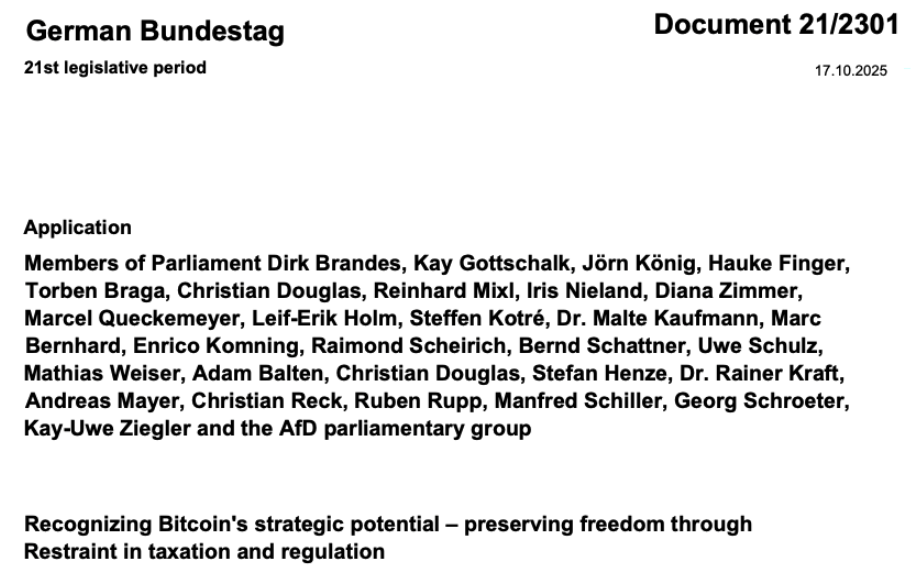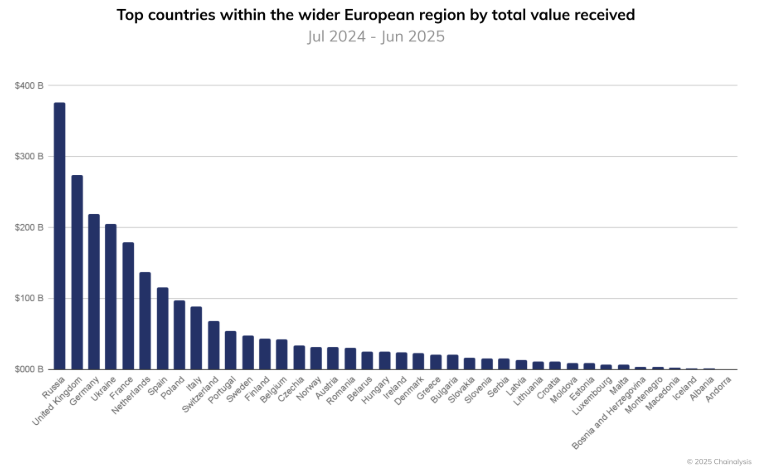The German parliament is set to review a motion urging the government to recognize Bitcoin as a unique, decentralized digital asset that deserves a strategic approach.
Germany’s main opposition party, Alternative for Germany (AfD), has submitted an official motion to the national parliament, the Bundestag, opposing the overregulation of Bitcoin (BTC).
Filed on Thursday, the motion argues that Bitcoin is fundamentally different from other crypto assets and should not fall under the Europe-wide crypto regulatory framework known as Markets in Crypto-Assets (MiCA).
“Overregulation of Bitcoin service providers and users in the course of national MiCA implementation jeopardizes Germany’s innovative capacity, financial freedom, and digital sovereignty,” the motion states.
Strategic role
In the motion, the AfD observed that the current tax treatment of BTC is “fundamentally positive,” but there’s still persisting legal uncertainty that discourages private long-term investments.
The group also called on German lawmakers to consider the growing trend of looking at Bitcoin as a strategic asset as part of national reserves:
“The German government has so far failed to strategically recognize Bitcoin, for example as a technology for energy integration or, in times of increasing monetary instability, as an asset held within the framework of currency reserves.”

The group advocated for maintaining the current 12-month holding period for tax-exempt gains, keeping Bitcoin’s VAT exemption, and ensuring the right to self-custody for individuals.
By filing the motion, the AfD parliamentary group has added Germany to the growing list of EU states calling for exploring a national Bitcoin reserve and easing MiCA regulations.
Related: What is Bitcoin if not crypto? Rumored Satoshi Nakamoto weighs in
On Oct. 22, Éric Ciotti of the Union of the Right for the Republic led a similar motion in France, urging the government to soften the MiCA regulation to promote stablecoins while banning central bank digital currencies (CBDCs).

Not everyone believes that MiCA has hindered crypto adoption in Europe. Implemented in full in late 2024, the MiCA framework has helped position Germany as a favored destination for crypto-native firms, according to the US blockchain analytics company Chainalysis.
In its latest Europe crypto adoption report, Chainalysis ranked Germany as the third-largest country in Europe by total crypto value received.
Magazine: Bitcoin OG Kyle Chassé is one strike away from a YouTube permaban























